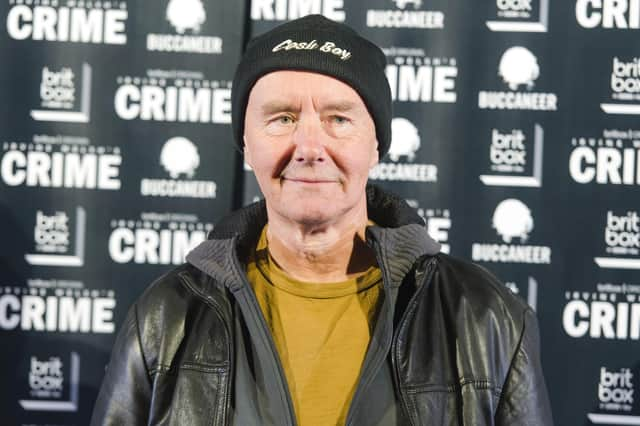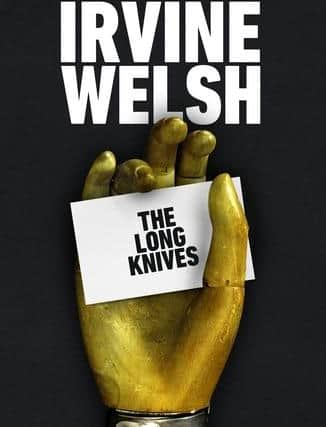Book review: The Long Knives, by Irvine Welsh


The dedication in Irvine Welsh’s first novel in four years is to his late friend Bradley John Welsh – the Edinburgh boxing gym owner and former football casual who played a gangland kingpin in the movie sequel to Trainspotting, before being murdered outside his flat in 2019 in a contract killing.
It reminds us sharply of the bluntly obvious and yet easily disregarded fact that violent slayings aren’t confined to the pages of crime fiction novels, but create real world victims and sorrows. It reminds us too of the proximity that reformed heroin addict and petty criminal turned multi-million-selling author Welsh once shared to the real Edinburgh underworld – a much closer proximity, at least, than the vast majority of his writer peers.
Advertisement
Hide AdAs with all of the Welsh oeuvre, there is dirt under the fingernails of this book – a grim, grimy sequel to 2008’s Crime, itself a follow-up of sorts to 1998’s Filth, and already the subject of a TV adaptation starring Dougray Scott. (An adaptation of this second book in the “Crime trilogy” is already in the works). Troubled Edinburgh cop Ray Lennox returns, on the trail of unidentified violent criminals who have not only been murdering, or attempting to murder, prominent politicians, but in the process have done away with parts, shall we say, private to them.


It’s a provocatively Welshian entry point to the core theme of the book – transgender issues and gender identity – which may or may not have something to do with the motives for this bloody spree. To help him navigate the labyrinth of sensitivities surrounding the hot button topic of our age, Welsh went so far as to bring in a “trans advisor” when writing The Long Knives. And yet, he still can’t help but seem to treat it all with a bit of a smirk at times: at one point a tourist up the Scott Monument literally gets slapped in the face with a dismembered member.
Undoubtedly, Welsh seems much less in his comfort zone when unconvincingly trying to draw the contours of the strained relationship between Lennox’s sister and her teenage trans daughter than he is when describing the cop’s latest booze and cocaine frenzy. Unspeakable demons from Lennox’s past continue to haunt him, as the case draws ever closer to his personal life.
There is plenty Welsh fans will enjoy about this book, not least its subtext of cartoonishly gory Tory bashing (note to Conservative readers: Irvine Welsh novels probably aren’t for you). And yet there’s much that feels frustratingly rushed about it too. Characters are introduced and then disappear with confusing speed – are we meant to know them from elsewhere in the exponentially expanding Welsh universe, or are they simply red herrings, dumped overboard like chum from a trawler? It renders The Long Knives less of a “whodunnit” than a “who was that?”
The Long Knives, by Irvine Welsh, Jonathan Cape, £18.99. Irvine Welsh is appearing at the Edinburgh International Book Festival on 29 August